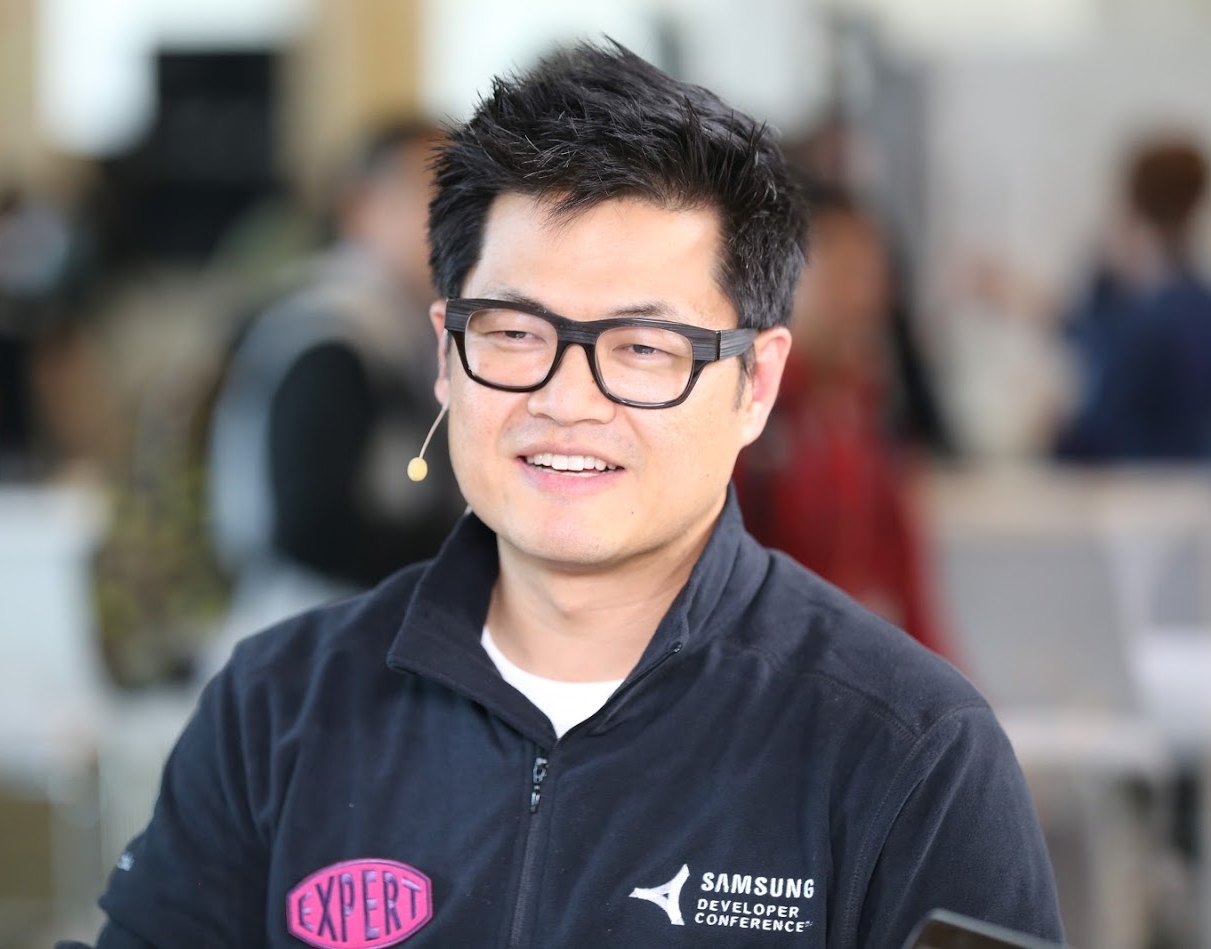 CLOUD
CLOUD
 CLOUD
CLOUD
 CLOUD
CLOUD
It’s one thing to connect an “internet of things” device to a network; it’s quite another to link a menagerie of devices — in the car, the kitchen, the basement, wrapped around a person’s wrist — together. This is the feat Samsung Electronics Co. Ltd, Amazon Web Services Inc. and others have set out on with their connected consumer IoT strategies. Both of said companies have smoothed icing on top of their IoT with artificial intelligence assistants through which users corral and command all devices. That’s the theory, anyway; there remain potholes in the path to perfecting the seamless consumer IoT experience.
“We’re creating one continuous and seamless experience across all the devices we have,” said Thomas Ko (pictured), vice president and global head of service innovations at Samsung.
Samsung just set a Q1 2018 window for connecting all of its TVs, refrigerators, microwave, smartphones and other devices, plus hundreds of third-party products through a common SmartThings application. The company has said that its AI assistant Bixby 2.0 built into its latest Samsung Galaxy smartphones will add the finishing touch, enabling easy voice interaction with all connected devices.
Ko spoke with John Furrier (@furrier), host of theCUBE, SiliconANGLE Media’s mobile livestreaming studio, during last October’s Samsung Developer Conference in San Francisco, about Samsung’s “intelligence of things” mission.
Watch the complete video interview with Thomas Ko below:
How far has the Korea-based conglomerate come toward its goals? Last week at the International Consumer Electronics Show in Las Vegas, Nevada, it served up the fruits of its ongoing labors with live demonstrations of its SmartThings connected devices. For one, it appeared that Bixby is not yet affixed to the entire device inventory and platform sufficiently to make it the single stop for executing all actions. This year, just a select set of Samsung Smart TVs and Family Hub refrigerators will ship Bixby-equipped. The company has promised to outfit all of its connected devices with Bixby by 2020.
That may help sell customers on the intelligent and seamless interaction of Samsung devices proper, but what about non-Samsung devices?
If the highest ratio of compatible devices to a single AI user interface wins the consumer IoT market, than AWS is an obvious favorite. The company is gorging on a 1,200-strong ecosystem of outside brands that have integrated its Alexa AI assistant into products.
“If voice is going to be everywhere, you want to see voice transition from the home, when you get into your car. … You’d also want it at work,” said Steve Rabuchin, Amazon’s vice president of Alexa Voice Service and Alexa Skills, as quoted by CNET. “We’re going off into auto and these other places because we believe voice is a natural interface and it should be ambient.” Who hasn’t wistfully stared at a refrigerator and wished it could open the garage door, turn out the office lights, and speak up when the laundry is dry?
Samsung is courting third-party developers with its Bixby software developer kit. “We decided to make this IoT ecosystem that is pushed by Samsung […] open,” Ko said. The Bixby SDK, a SmartThings API for connecting to the SmartThings Cloud, Open Connectivity Foundation standardization, and its Artik interoperable IoT modules open its tent to collaborating partners and developers.
Some are not convinced that the Bixby SDK will get them caught up with consumer IoT third parties.
“Doubling-down on Bixby is a risky move,” Todd Bishop, co-founder and editor of GeekWire wrote on the site. “Amazon and Google are leveraging larger ecosystems of products to let people use the same voice assistant across a range of devices. But someone wanting to take full advantage of Bixby across their home and work lives would, at this point, need to amass a large collection of Samsung products. Samsung has announced third-party device support for Bixby, but it’s unclear if that initiative will reach critical mass.”
A couple of quirks in Samsung’s Bixby ecosystem play, however, could help it draw developers, according to Patrick Moorhead, founder, president and principal analyst at Moor Insights & Strategy. “They’re not going to mine the data,” he told theCUBE’s John Furrier last October. “Therefore, they’re the safe place for you — consumer — and our SmartThings ecosystem to put your data. And we’re going to help you make money to do that. I don’t think Google is as interested in that, and I don’t think Amazon is as interested in that either.”
Scalable consumer IoT demands that Samsung beef up its cloud, however, Moorhead explained.
Watch the complete video interview with Patrick Moorhead below:
A chink in Amazon’s armor of particular interest in AI assistance is its lack of a smartphone line. It fired a shot (pun intended) with its 2014 Fire and missed, garnering mostly poor reviews. Many people wish for the AI assistant on their phones to also act as the AI assistant across all their connected devices. Samsung is building in Bixby to its Galaxy phones and Apple Inc. is equipping iPhones with Siri. Is Alexa so much better that smartphone owners can be bothered to install and use it instead?
Google Assistant has the lion’s share in smartphone installs with 46 percent, which is projected to shoot past 60 percent by 2022, according to Strategy Analytics Inc.
Developers with a liking for the Android operating system (Samsung smartphones’ OS) might decide the Bixby SDK is a convenient helper for their mobile apps. The most recent Android 8.0 release is as good as it gets according to some developers, like Prerak Trivedi, senior Android developer at Postmates Inc. on-demand delivery service.
“In my opinion, it’s surpassed Apple’s iOS platform,” he told theCUBE’s John Furrier, noting its multitasking and split-screen capabilities. He added that he could imagine Postmarks building an app with Bixby in the future.
Watch the complete video interview with Prerak Trivedi below:
Be sure to check out more of SiliconANGLE’s and theCUBE’s coverage of the Samsung Developer Conference.
THANK YOU